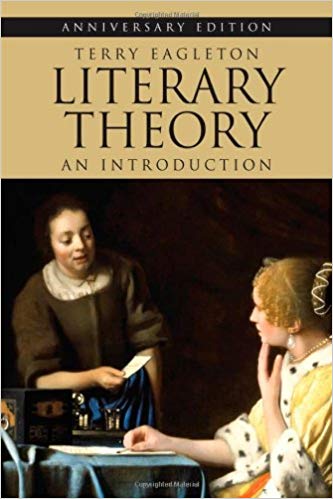What you will Learn in this Course?
A clear discussion of postcolonialism as a concept and as a field of study.
Introduction to some major postcolonial authors.
Introduction to some major postcolonial theorists.
Application of these ideas and this knowledge to the real-life situations.
Course Registration and Other Details
Dates: June 1 to July 31.
Timings: The class will meet every Monday from 8:00 am to 10:00 am US Eastern Standard Time.
Mode: I will teach this class through Google Classroom.
Bonus: FREE access to my Recorded Udemy Course on Postcolonialism.
Fees: $300 (Discounts available for soft currency countries)
Introduction
This course introduces you to some of the major world/postcolonial authors. The postcolonial cultural production can be roughly divided into three overlapping phases: the works produced during the contact phase, the native responses to colonialism, and the postcolonial cultural production both from the global periphery and the diasporic authors. Postcolonialism is a dynamic, expansive, and contested field of literary study involving a high degree of multidisciplinarity and theoretical innovation. This course will also introduce you to the early and current debates of the field and possibilities of the field in the future. We will pay special attention to the current state of high capital and neoliberal globalization and the artistic and critical responses being offered in resistance. We will read these texts of the global periphery not simply as crystallized versions of the cultures that they attempt to represent, but also use them as points of departure into a study of the larger power structures within which these texts are produced. In doing so we will also question our own place and privileged location within the academy and imagine the possibilities of making our work commensurate with the acts of semiotic and material resistance being offered to the reigning power structures by the cultures of the global south in the spirit of what Gramsci describes as the organic intellectuals. Using printed texts and film, this course will introduce you to the current global negotiation of power, the articulation of native resistance to the imperatives of globalization, and the native attempts at achieving social justice. In doing so we will also touch upon the role of the nation-state within the current climate of neoliberal globalization and the global war on terror, the politics of the diasporic cultural production, and the possibilities of rhizomatic global popular alliances.
Required Texts:
Class Reader (To be provided by the Instructor)
Handouts (Provided by the Instructor)
Weekly Schedule (Can be changed by the instructor)
Week One
Introduction to the course and Class Discussion on the following:
- Young: Intro to Postcolonialism
- Video: Postcolonialism
New Terms: Center/periphery, Colonialism, Imperialism, Third World
Readings for Next Week (Available under the Digital Library)
McClintock, Shohat, Dirlik
Week Two
New Terms: Binarism, Othering, Going native
Class Discussion: McClintock, Shohat, Dirlik
Readings for the Next Week:
Achebe, “An Image of Africa,” (101-107), Frantz Fanon, “ Black Skin White Masks,” (138-140) “From Wretched of the Earth” (107-110).
Aime Cesaire, “A Tempest,” (111), Chinweizu, “Decolonizing the . . .” (114), Ngugi “Creating space . . .” (117-121)
Week Three
Class Discussion:
Achebe, “An Image of Africa,” (101-107), Frantz Fanon, “ Black Skin White Masks,” (138-140) “From Wretched of the Earth” (107-110).
Aime Cesaire, “A Tempest,” (111), Chinweizu, “Decolonizing the . . .” (114), Ngugi “Creating space . . .” (117-121)
New Terms: Diaspora, Discourse
Readings for the Next Week:
P’bitek (167), Head, “The Deep River,” (286)
Mahfouz, “Zaabalawi,” (803), Rifaat, “My World of the Unknown,” (247), Darwish, “Identity Card (136)
Week Four
Class Discussion:
P’bitek (167), Head, “The Deep River,” (286)
Mahfouz, “Zaabalawi,” (803), Rifaat, “My World of the Unknown,” (247), Darwish, “Identity Card (136)
New Terms: Native, Nativism, Authenticity, Social Darwinism
New Terms: Authenticity, Social Darwinism, Subaltern, Appropriation, Abrogation
Readings for Next Week:
Mukherjee, “A Wife’s Story,” (306), Hossain, “Sultana’s Dream,” (122).
Narayan, “A Horse and Two Goats,” (143), Naipaul, “Our Universal Civilization,” (304).
Week Five
Class Discussion:
Mukherjee, “A Wife’s Story,” (306), Hossain, “Sultana’s Dream,” (122).
Narayan, “A Horse and Two Goats,” (143), Naipaul, “Our Universal Civilization,” (304).
New terms: Agency, Mimicry, Magic Realism
Readings for the Next Week:
Marquez, “ A Very Old Man . . .” (174), Fuentes, “The Prisoner of . . .” (178).
Rushdie “The Courter” (289), Desai “The Farewewll Part” (278), Cisnerros “Never Marry a Mexican” (312)
Week Six
Class Discussion:
Marquez, “ A Very Old Man . . .” (174), Fuentes, “The Prisoner of . . .” (178).
Rushdie “The Courter” (289), Desai “The Farewewll Part” (278), Cisnerros “Never Marry a Mexican” (312)
New Terms: Neoimperialism, Militarization, Corporatization.
Readings for the Next Week: Things Fall Apart
Week Seven
Class Discussion
Things Fall Apart
Week Eight
Class discussion:
Things Fall Apart
Course Wrap up!


